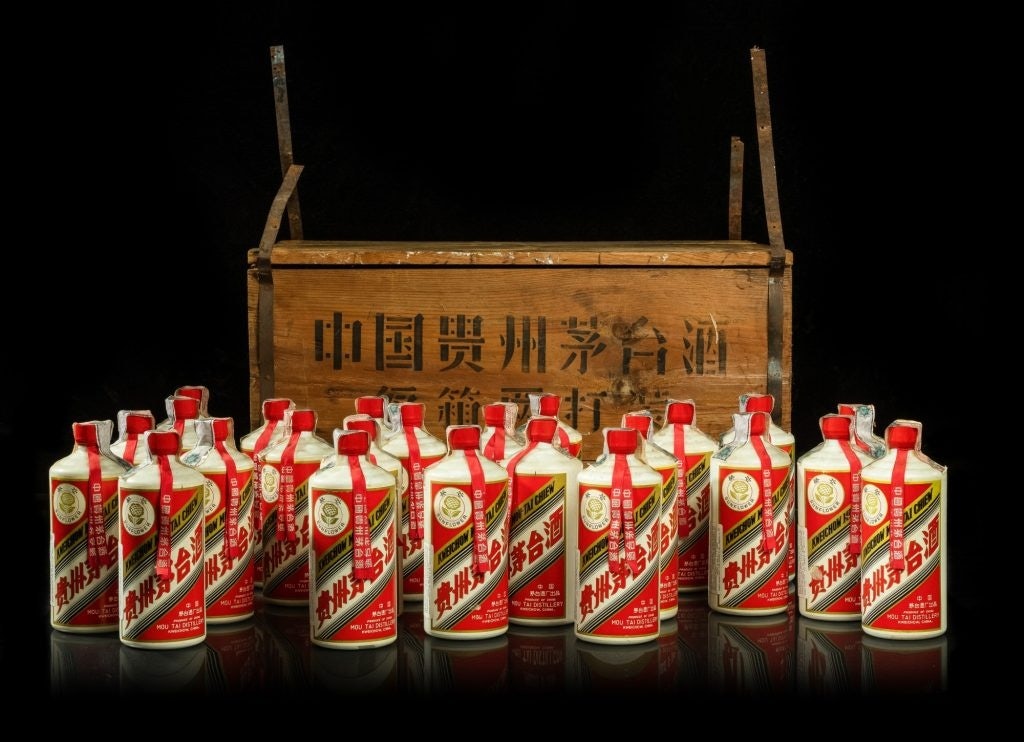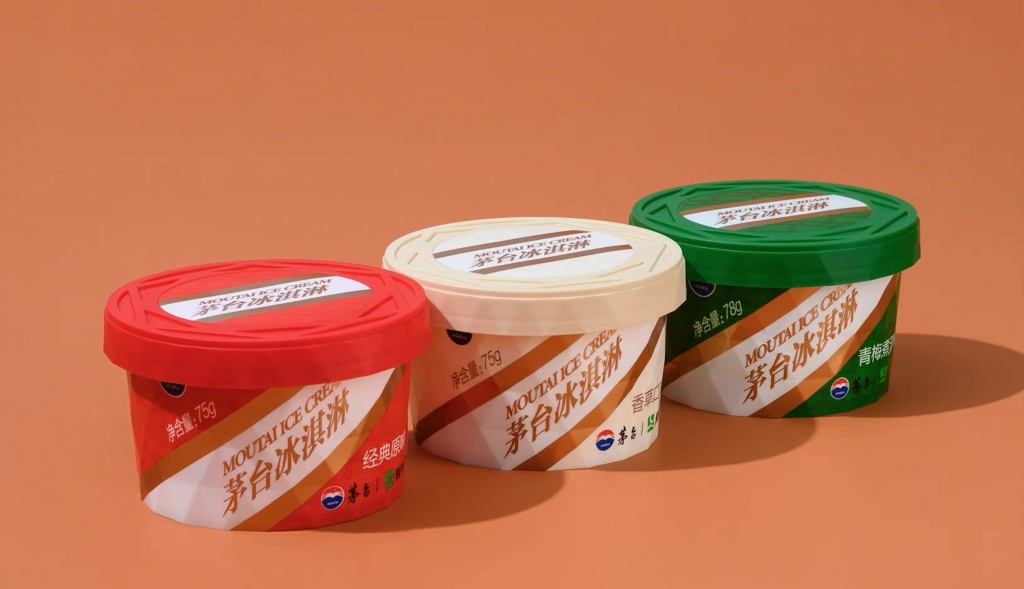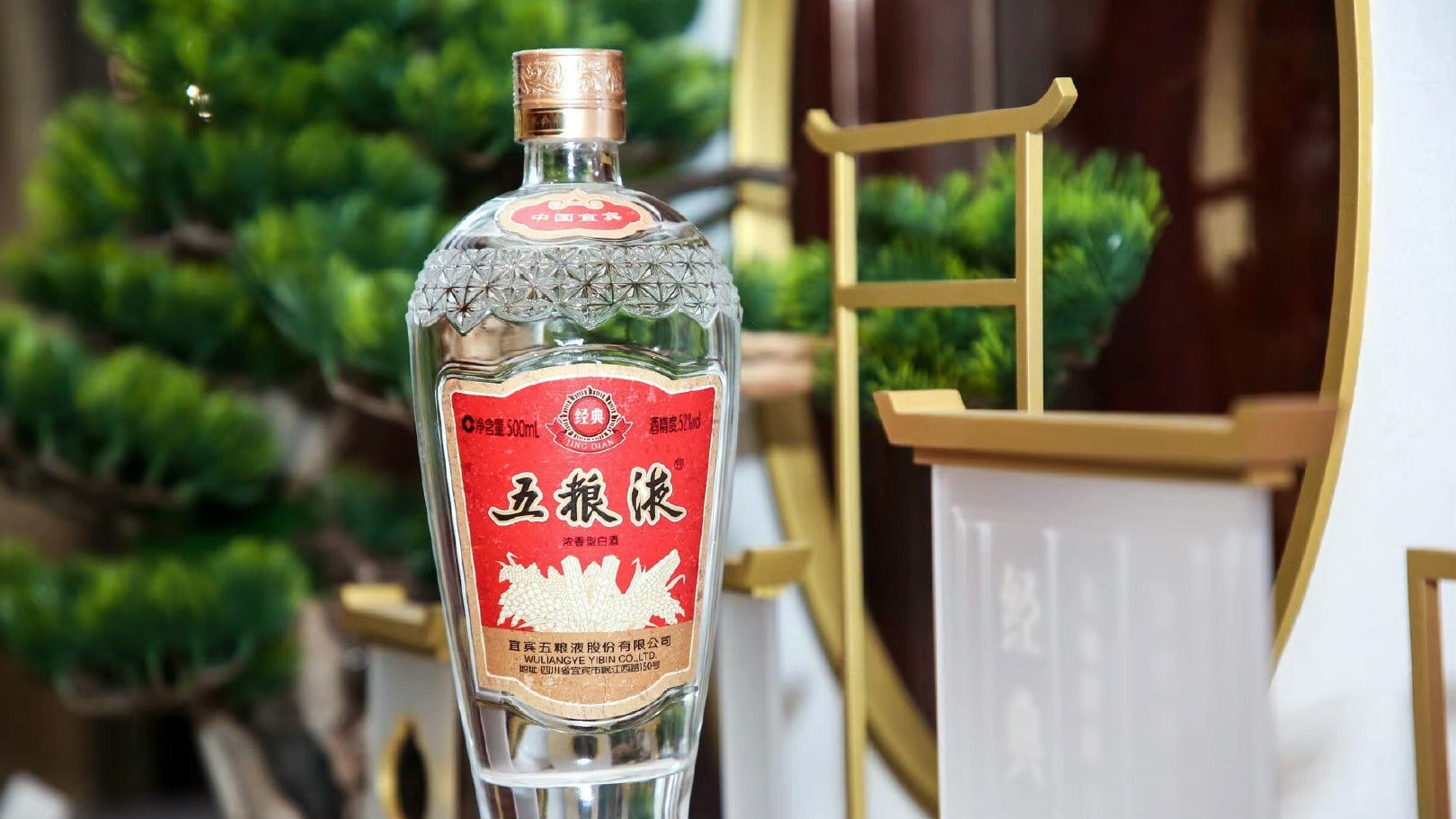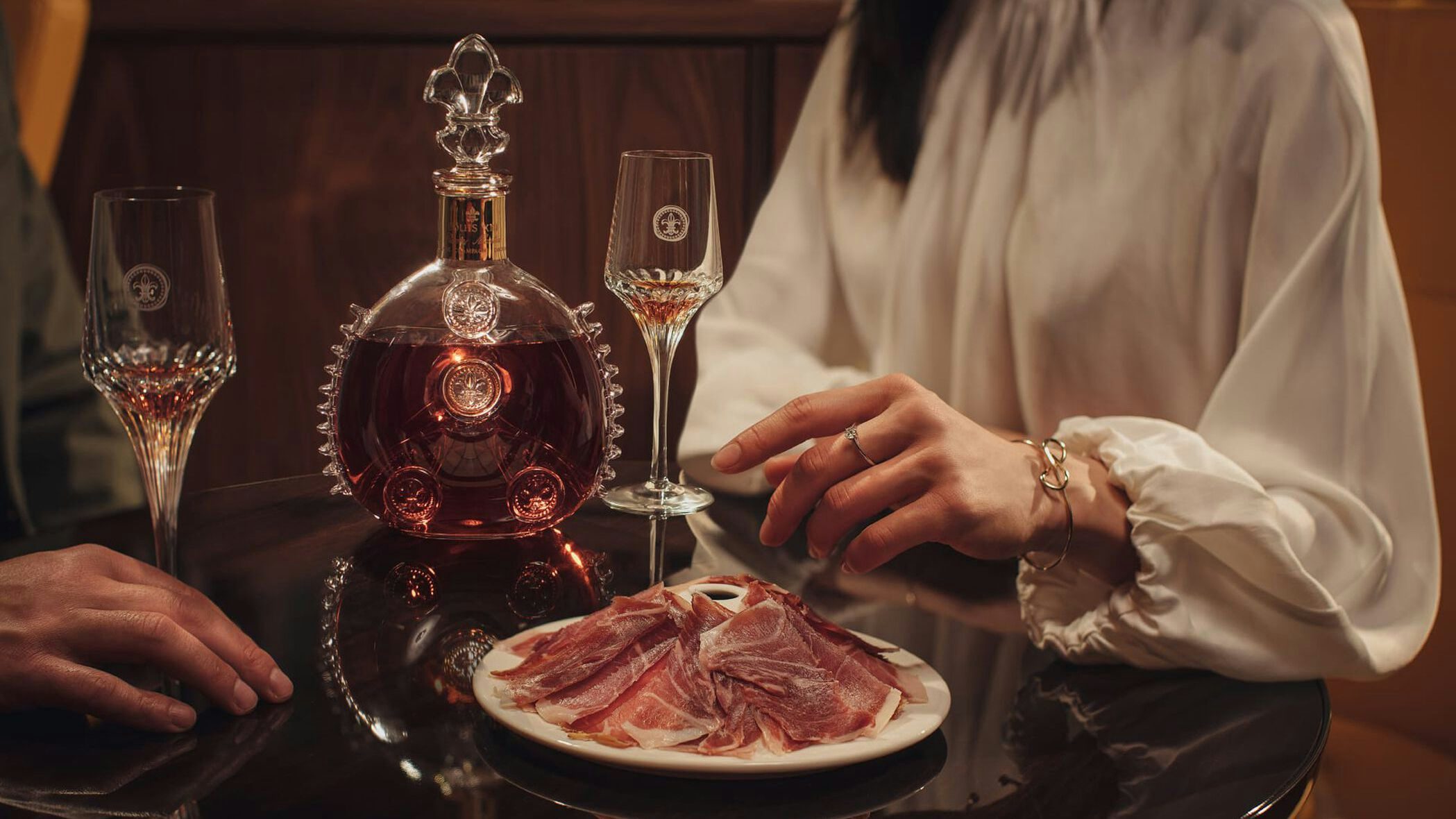Esteemed Chinese baijiu label Kweichow Moutai has just been ranked as the world’s most valuable spirits brand again, valued at 43 billion by Brand Finance. Another Chinese baijiu house, Wuliangye, was valued at 28.7 billion in a distant second place. As a share of global brand value in spirits, Chinese labels now command 68.4 percent — its highest ever share, up from 60.7 percent pre-pandemic.
Four other baijiu producers pop up in the top 10: Luzhou Laojiao (3rd), Yanghe (4th), Xinghuacun Fen Wine (6th) and Gujing Gong Jiuan (8th), giving China’s national spirit greater dominance over the global market than last year.
The increasing global power of baijius may come as a surprise to those expecting to see more familiar international spirits topping the league, such as Hennessy Cognac from the LVMH stable or Diageo’s ubiquitous Johnnie Walker whisky. The latter are present, but ranked fifth and 10th respectively, with Hennessy the highest valued Western brand in the Brand Finance Spirits 50.
Moutai and Wuliangye have held the top two positions for years, though Wuliangye is catching up to its rival; the latter gained 12 percent in brand value while Moutai — 34th on Jing Daily’s luxury index — dropped by 5 percent. In simple terms, brand value is defined by Brand Finance as the net economic benefit that an owner would achieve by licensing the brand in the open market.
“Our experts have assessed Moutai and Wuliangye as the two most valuable spirits brands in the world since 2017,” Brand Finance Asia-Pacific’s Managing Director Alex Haigh told Jing Daily. “Valuations are based on a number of factors. Baijius are iconic in a very large market where they have extremely high brand strength as a result of their association with the founding of the modern nation and social celebrations such as weddings.”
Luxury status, but mass appeal#
Moutai’s lead position is also cemented by its popular presence at state banquets and as diplomatic gifts. In June 2021, 24 bottles of Moutai’s "Sun Flower" 1974 sold for 1.4 million at Sotheby’s in London, the highest price achieved at auction for a single lot of Moutai outside China.

“The Maotai brand is still expanding,"says Ashley Galina Dudarenok, China market commentator and founder of marketing firms ChoZan 超赞 and Alarice. "Demand is being driven by Maotai’s anticipated price growth. Both Maotai and Wuliangye are considered representative brands of China. Moutai is always used as a gift to foreign leaders while Wuliangye is the go-to brand for presents."
China’s top spirit houses are tapping technology and international markets to drive greater recognition of baijius, which outside China are still relatively unknown. Moutai, for example, has leveraged its mobile app, which has over 10 million users, for online payments, e-commerce, and direct to consumer connections. This year the brand also made the unusual move into alcoholic ice cream in Guizhou Province (the home of Moutai) in partnership with Chinese dairy giant Mengniu Dairy to engage a younger demographic.

Global expansion and staying power#
Wuliangye has put internationalization firmly into its brand strategy, aligning with China’s successful Belt and Road initiative. In addition to engaging in trade expos, it has made a splash at the annual Boao Forum for Asia and the World Economic Forum in Davos.
Other baijiu brands have had the same idea. Last year, French independent, family-run Cognac house Camus and China’s Shede Spirits unveiled Shede Founder’s Tribute at Shanghai’s exclusive Club 55. The baijiu was co-developed to open up the category to more consumers by adding lower price points, and to globalize it.
Camus had already started introducing Kweichow Moutai into the travel retail channel two decades ago “as the biggest brand you’ve never heard of,” according to Cyril Camus, president of Camus Group. “Introducing lower prices with Shede allows more people around the world to try the brand and create some momentum.”
While western spirits brands are opening up in China, they are no threat to baijiu. Hennessy and Johnnie Walker have significant operations in the country, but Brand Finance research suggests that they are both significantly less familiar to consumers than baijiu. “Baijiu plays a special role in the culture and history of modern China, and it is unlikely that a foreign brand will substantially displace them in the foreseeable future,” adds Haigh.
Displacement no, but greater market share… quite possibly. Dudarenok said: “China is a key market when it comes to spirits (and) makes up about 156.7 billion in revenue. Further pushes in the China market would absolutely benefit both Hennessy and Johnnie Walker.”
Drinks analyst IWSR points to non-traditional luxury spirit categories as new drivers in the alcoholic drinks market, led by status spirits (bottles sold at 100 and above). “Future category growth will be underpinned by increasing levels of wealth and new market entrants — especially in Asia and the US,” said the London-based market research group. IWSR consumer research shows that 39 percent of urban affluent Chinese alcohol drinkers said they spent over RMB500 (74) on a bottle of alcohol to drink at home in the first half of 2021.
A global economic slowdown will affect the Chinese luxury spirits market, but not to any significant degree. Dudarenok notes that: “Since the beginning of this year, with global interest rate hikes, the market has lowered the valuation of the liquor sector. The recession is already impacting consumption globally and in China. Luxury spirits will go down, too. But in the long run, I believe that Chinese luxury spirits will remain one of the best assets in the A-share market.”

